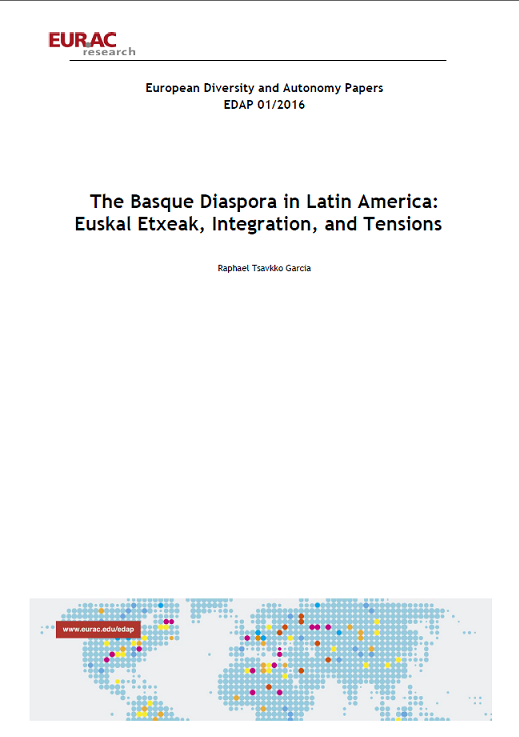Basque Diaspora in Latin America: Euskal Etxeak, Integration and tensions.
Abstract
The establishment of the Basque diaspora in Latin America can be divided in several different periods. First, from the 16th to 18th century, the so-called original diaspora of Basques who were part of the Spanish colonial regime. The second can be traced to the 19th century, consisting of a mixture of impoverished Basque migrants seeking jobs, especially in Uruguay and Argentina, and of refugees fleeing from the Spanish War of Independence and the Carlist wars. The third wave is identified by, but not only through, the considerable amount of refugees from the Spanish Civil War on the 1930’s. The fourth wave came during the 1970s, with refugees from the Franco Dictatorship, ETA members and sympathisers. In this paper I will argue that each new wave of migrants brought tension to the diaspora, with the Euskal Etxeak, or ‘Basque houses’, as a focus point. The main idea is to analyse the different tensions and political discussions of this set of diasporic waves in Latin America.
Keywords
Diaspora – Basque Diaspora – Basque Country – Euskal Etxea – Identity – Abertzale – Nationalism
Indexed
Ebsco, DOAJ, AEI
Originally presented at the Workshop “Protecting and including new and old minorities: Opportunities, challenges and Synergies”, EURAC (European Academy) in Bolzano, Italy, 2015.



Deixe um comentário